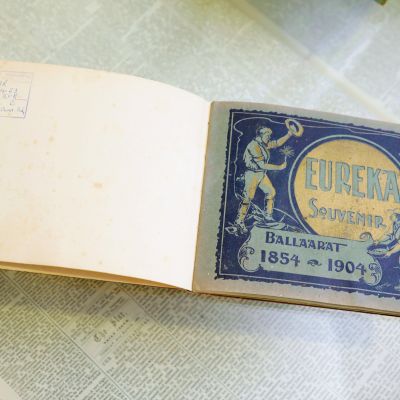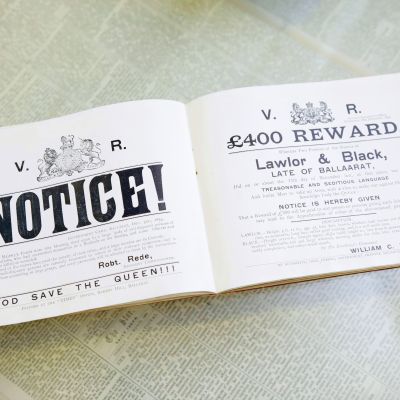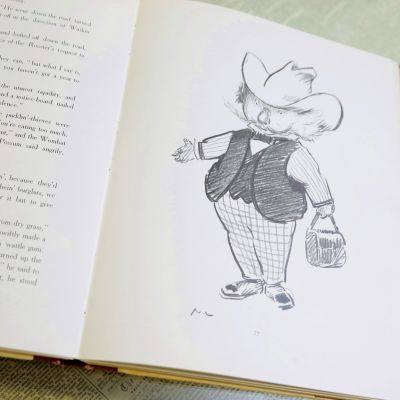A hub for local history
Tucked inside the Eureka Centre, the Ballarat Research Hub at Eureka (BRHAE) is a one-stop-shop for historical research in the Ballarat region.

If you’re not a history buff, you’d be forgiven for not having heard of the Ballarat Research Hub at Eureka.
However, Information Services Librarian Simon Jacks believes that BRHAE is for anyone interested in learning about local history and invites community members to come inside and discover what the hub has to offer.
Combining the Ballarat Libraries’ Australiana Research Collection and historical research services, with the Public Record Office Victoria’s Ballarat Archives Centre, BRHAE is also home to the resources of the Ballarat and District Genealogical Society.
“We call ourselves a one-stop-shop for people who are interested in doing local history, family history, all those sorts of inquiries,” Simon says.
“Anyone can come in and browse the collection or get special assistance, like a one-on-one session where we help them find what they are looking for.
“You don’t need to be a history expert — we can help.”
A rare and historical collection
BRHAE houses a beautiful and rare collection of historical books, newspapers, maps and ephemera.
The Australiana Research Collection at BRHAE dates back to 1862 and the old Ballarat East Library, which Simon says was probably the first rates-assisted library in Australia.
“The Australiana Research Collection formally began in the 1950s when Austin McCallum, the Chief Librarian of the Municipal Library, came across some remnants of the old Ballarat East Library and he identified special aspects of that collection,” Simon says.
The Australiana Research Collection includes many rare many books, including first editions of Matthew Flinders’ ‘Voyage to Terra Australia’ (1814) and the first edition of Norman Lindsay’s ‘The Magic Pudding’ (1918).
It also features Ballarat gold rush era newspapers including The Ballarat Times, The Chinese Advertiser, Evening Echo, Cornstalk, The Miner and Weekly Star, and The Ballarat Star. It also holds examples of the The Ballarat Punch, notable for its satirical cartoons.
Perhaps the most important item in the Australiana collection is the notebook of Ellen Young.
Known as ‘the Poetess of Ballarat’, she is remembered for her letters to the Editor of The Ballarat Times, which sided with the protesting miners in their quest for a fairer mining licence system and improved democratic rights. Compiled in 1870, it includes hand-written transcriptions and press clipping of her letters to the editor and poems.
“Ellen Young was well before her time,” Simon says.
A central space for historical research
From Ireland to America, Simon and the rest of the team at BRHAE have fielded historical inquiries from all over the world and from across the country.
“Because Ballarat was such a multicultural place during the goldfields, a lot of their forebears passed through here, so they want to sort of follow up to see if we can find anything,” Simon says.
From questions about family history to the history of a person’s house in Ballarat, Simon says he and the team usually send people away with their questions answered. If not, they always suggest another place where the person could find further information.
“We’ve got the Public Record Office of Victoria (PROV), which is the state archives, here, so if someone has an address, PROV has the rate books for Ballarat, most of which have been digitised up to the 1930’s,” Simon says.
"We also hold the resources of the Ballarat and District Genealogical Society, who meet people at BRHAE to assist them with the family history research.
“We also help people access records through online programs such as the Ancestry Library edition, which people can use to look up birthdays and marriage records, as well as postal directories, which were like old phone books from the 1800s, which can give people an address if they don’t have one.
"If you’re interested in history, certainly family history, come and see us because I’m sure we can help you.”


